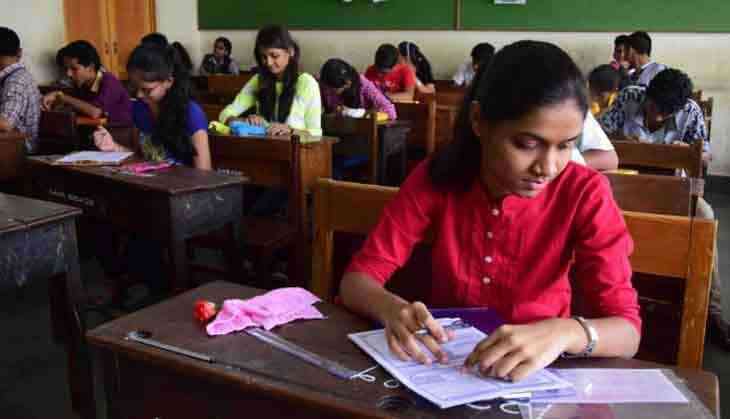
Just a few days after Delhi's Education Minister Manish Sisodia proposed 85% reservation for Delhi students in Delhi University (DU) colleges, a high-placed source in the state government informed Catch that funding may be cut off for colleges that do not comply with the mandate.
The Delhi government funds 28 colleges that come under DU, of which 12 colleges receive 100% funding. The rest 16 receive a 5% funding from the government. On condition of anonymity, the source added that colleges might lose their entire funding if they do not follow the mandate.
The resolution passed in the Delhi Assembly on Thursday, proposed by Delhi’s education minister Manish Sisodia, seeks to reserve 85% of seats in these colleges for Delhi students. Any student who completes Class 12 from a school in Delhi is eligible for this category.
However, Delhi University Academic Council and as well as the Teachers’ Association have opposed the resolution, calling it a ‘counterproductive’ move. The Delhi University Teachers’ Association (DUTA) passed a unanimous resolution on Friday to oppose the proposal.
Nandita Narain, President of DUTA and Federation of Central Universities' Teachers' Associations (FEDCUTA) said, “Delhi University is a central university with an all-India character, that caters to students from across the country. This facilitates a regional, ethnic and social diversity of students and faculty that enriches the learning process and fosters a spirit of national integration. Restricting the entry of students from outside Delhi to just 15% would impoverish these institutions and go against the character of a central university.”
“It is true that Delhi government funds some of these colleges fully and others partially. In return for their funding, they get a unique opportunity to govern 28 colleges of a central university, providing quality education that students of Delhi are able to access. Rather than taking a populist and a counter-productive decision, they should use this opportunity to set an example of good governance that these colleges have lacked for many years. This is a chance for them to demonstrate to the whole country their commitment to providing quality, affordable higher education,” she further added.
“We are a central university and we are not bound by state government resolutions. The resolution is immaterial. Just because these colleges are funded by the state does not change the rules. They are Delhi University colleges so they are bound by Delhi University regulations. All the university ordinance, statutes, acts are passed by the parliament and signed by the President of India. The academic council does not need to take cognizance of any resolution passed by any state government,” said Professor Devesh K Sinha, Dean of Colleges in the DU Academic Council, told Catch.
Sinha also added that the current admission process in the varsity will go on as usual.
All's fair?
The Delhi government has its own 'logic' to defend this resolution.
“Many students in Delhi are struggling to get admission in higher education institutions. These 28 colleges are funded partially or fully by the Delhi government. The money of Delhi's taxpayers is being used to fund these colleges. Then Delhi students should get a preference right? It is our responsibility to safeguard the interest of Delhi students since the funding of these colleges are coming for the city’s taxpayers,” Manish Sisodia told Catch.
The state Assembly also adopted another resolution demanding an amendment in the Delhi University Act, 1922 that prohibits the setting up of any other affiliating university in the Capital. Section 5 and sub-section 2 of the Act also says that no other university in Delhi is legally authorised to give affiliation to any college.
“To expand the capacity of higher education, most of the states are free to open universities. But in Delhi that is not the case. The University of Delhi Act 1922 expressly forbids the opening of any other affiliating universities. The act limits the ability of Delhi University to expand its higher education. Hence, the state govt has passed the resolution to amend the act,” Atishi Marlena, education advisor in the Delhi government told Catch.
“You are not letting the government open undergraduate colleges because of the University of Delhi Act, so the government is funding colleges in Delhi University. In those colleges, you don't give preference to the residents of Delhi. This is a bizarre situation,” Marlena added.
She said that the state government plans to speak to the members of the DU Academic Council.
“This decision has to be made in the DU Academic Council-level and then in the University Court. It does not have to go to the central government level at all,” she explained.
Other Delhi government run/funded universities like Guru Gobind Singh Indraprastha University, Ambedkar University, Indraprastha University, Delhi Technical University etc all have 85% reservation for Delhi students already.
Delhi seems to be following in the footsteps of some other states that have a reservation policy in place for local students in their universities.
Recently, the Tamil Nadu government reserved 85% seats in the state’s medical college through an order passed on June 22. The only difference is that the state reserved seats are for Class 12 students from the state board and not for state domicile.
According to PTI, Tamil Nadu’s logic behind the decision was that a majority of Class 12 graduates, over 4.2 lakh students, were from state board-affiliated schools while just 4,685 students actually wrote the central board’s Class 12 exam.
Maharashtra also reserves 25% seats for Maharashtra students in engineering colleges and as does Karnataka for its students in medical and engineering colleges in the state.
First published: 2 July 2017, 17:26 IST


